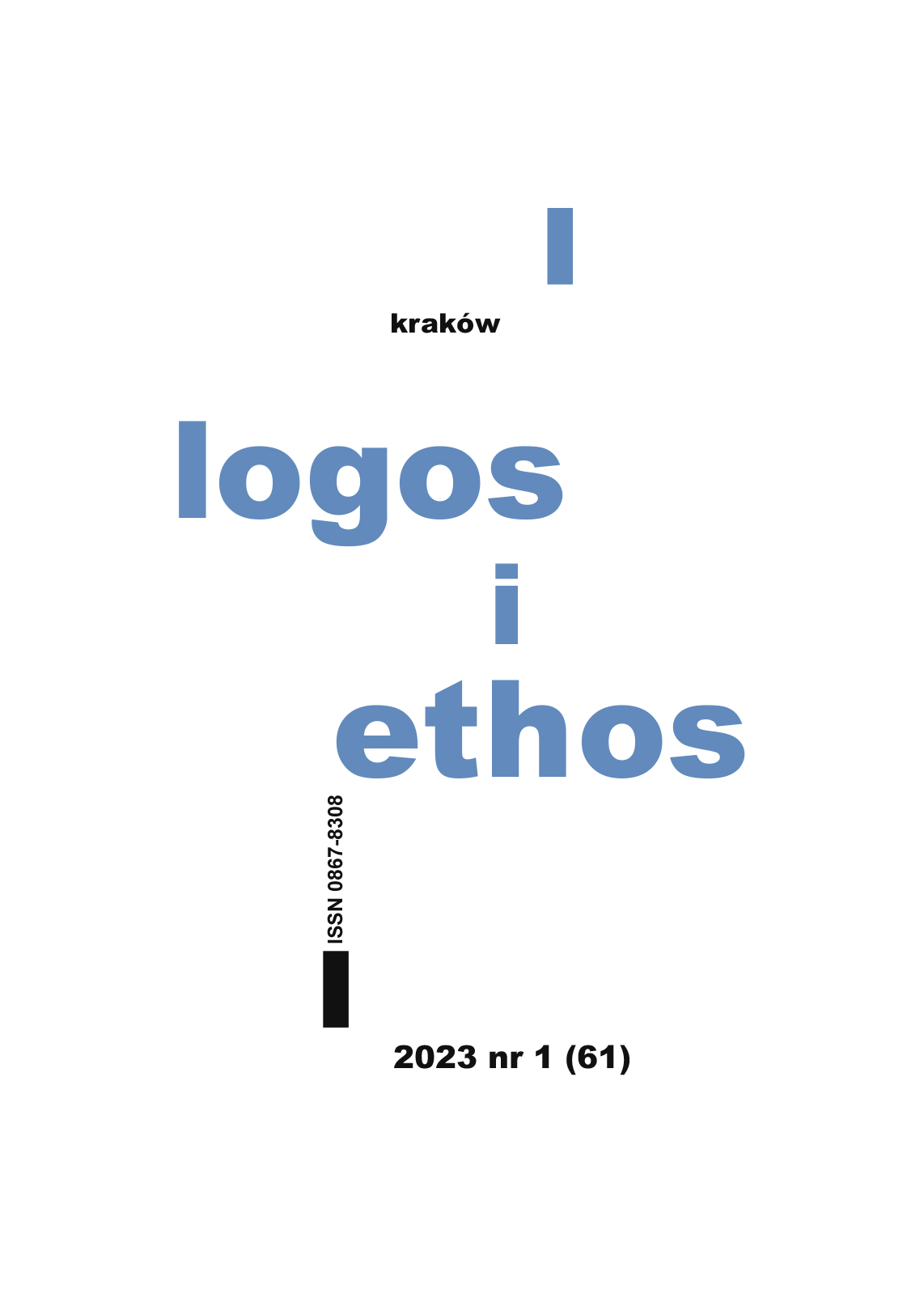An outline of the concept of duty in the ethics of Karol Wojtyła and Max Scheler
DOI:
https://doi.org/10.15633/lie.61107Keywords:
Kant’s ethics, Maritain’s personalism, cognitive-emotional experience of values, commandment of loveAbstract
On the basis of the analysis of the text of Karol Wojtyła’s habilitation dissertation, and the concept of ethics by Max Scheler reconstructed in the text, the understanding of duty („ought”, das Sollen) in both authors is presented, and the need to introduce duty into the system of ethics is discussed. Scheler’s phenomenological approach focuses on the feeling of moral values, which are legitimized by moral improvement and, at the same time, excluded by duty. Wojtyła’s Catholic personalism requires the realization of values in act, and hence translating them into duty. Types of duty communication in the form of commandments and evangelical counsels are discussed, which does not limit the freedom of the will. Wojtyła’s arguments against the Schelerian system from the standpoint of the Christian ethics are presented, exposing the morality of human efficacy, in which the key role is played by the objectification of values and the participation of conscience.
References
Gilson É., Thomism. The Philosophy of Thomas Aquinas, transl. L. K. Shook, A. Maurer, Pontifical Institute of Mediaeval Studies, Toronto 2002.
Hobbes T., Leviathan, or the Matter, Form, & Power of a Common-Wealth Ecclesiastical and Civil, Clarendon Press, Oxford 1929.
Kant I., Groundwork for the Metaphysics of Morals, ed. and transl. A. W. Wood, Yale University Press, New Haven 2002.
Mały słownik terminów i pojęć filozoficznych, ed. by A. Podsiad, Z. Więckowski, Instytut Wydawniczy Pax, Warszawa 1983.
Maritain J., Neuf leçons sur les notions premières de la philosophie morale, Les Editions Pierre Tequi, Paris 1951.
Scheler M., Der Formalismus in der Ethik und die materiale Wertethik. Neuer Versuch der Grundlegung eines ethischen Personalismus, Verlag von Hans Niemeyer, Halle 1921.
St. Thomas Aquinas, The Summa Theologica, transl. English Dominican Province, https://www.documentacatholicaomnia.eu (21.02.2023).
The New Lexicon Webster’s Encyclopedic Dictionary of the English Language, Lexicon Publications, New York 1991.
Wojtyła K., Ocena możliwości zbudowania etyki chrześcijańskiej przy założeniach systemu Maxa Schelera, in: K. Wojtyła, Dzieła filozoficzne, t. 1, ed. J. Merecki, Instytut Dialogu Międzykulturowego im. Jana Pawła II, Kraków 2022.
Wojtyła K., “Person and Act” and Related Essays, transl. G. Ignatik, The Catholic University of America Press, Washington 2021.
Downloads
Published
Issue
Section
License

This work is licensed under a Creative Commons Attribution 4.0 International License.
Authors who publish with this journal agree to the following terms:
- Authors retain the copyright and full publishing rights without restrictions, and grant the journal right of first publication with the work simultaneously licensed under a Creative Commons Attribution 4.0 International License that allows others to share the work with an acknowledgement of the work's authorship and initial publication in this journal.
- Authors are able to enter into separate, additional contractual arrangements for the non-exclusive distribution of the journal's published version of the work (e.g., post it to an institutional repository or publish it in a book), with an acknowledgement of its initial publication in this journal.
- Authors are permitted and encouraged to post their work online (e.g., in institutional repositories or on their website) prior to and during the submission process, as it can lead to productive exchanges, as well as earlier and greater citation of published work (See The Effect of Open Access).

